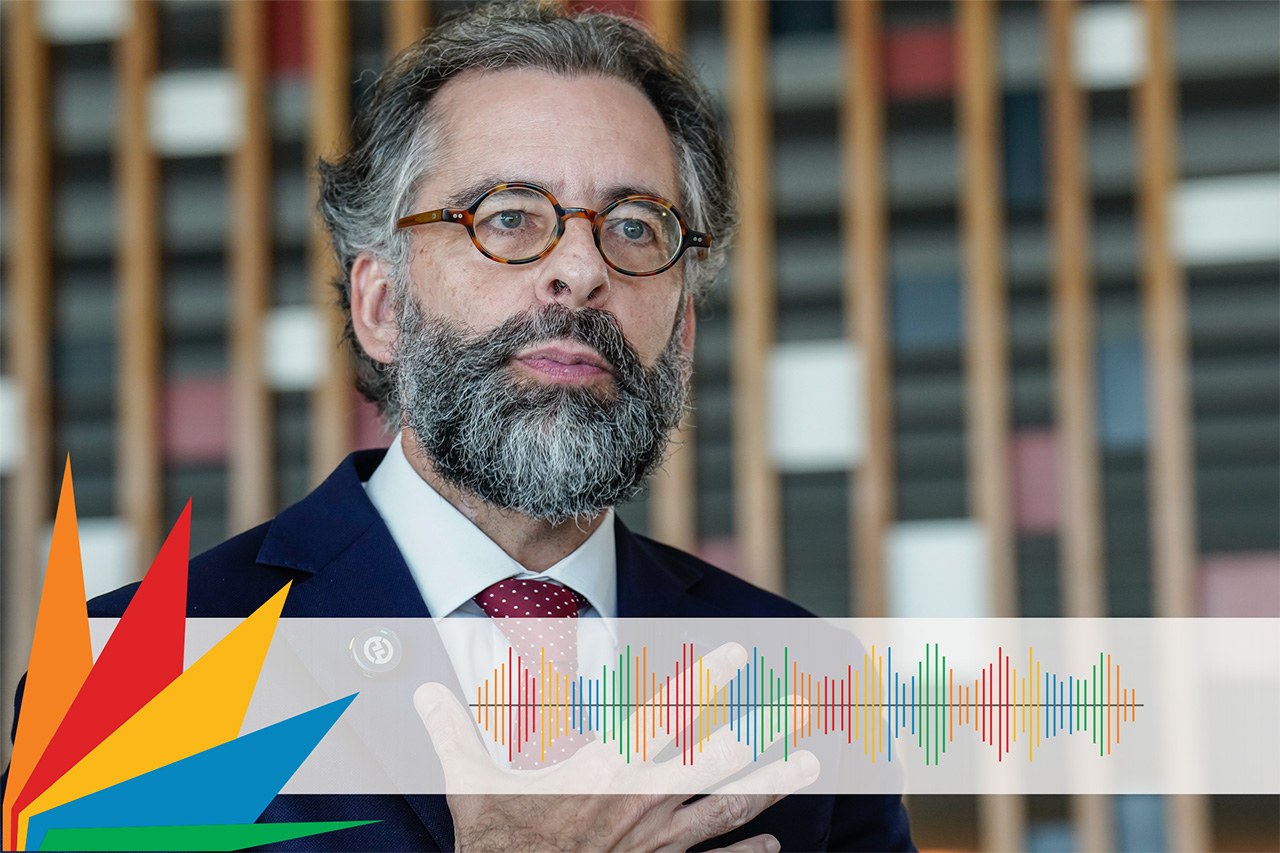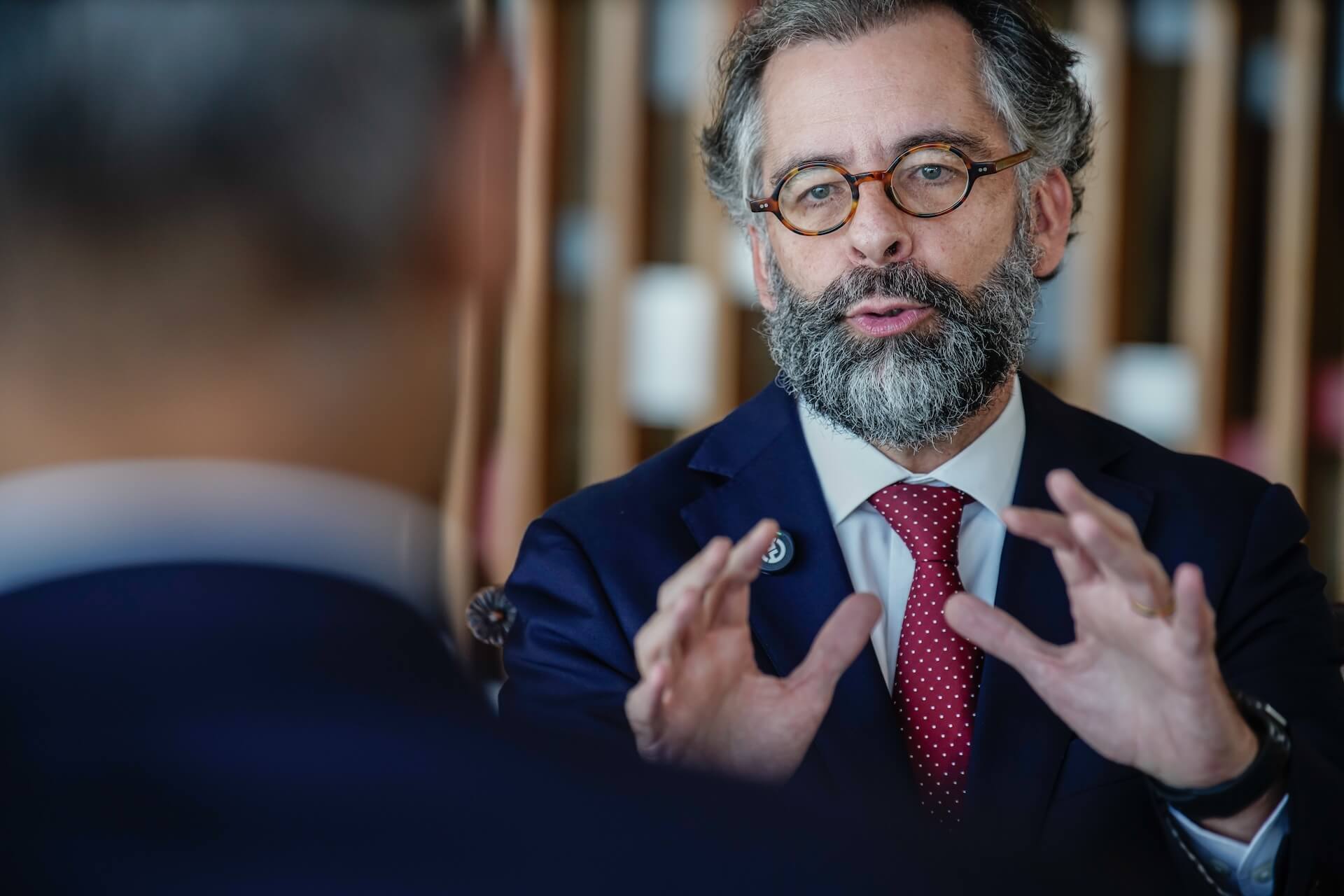BRICS Brasil Bulletin #03 - Interview - Mauricio Lyrio: “The BRICS is essential to strengthening emerging economies and combating inequalities”
Appointed as Sherpa by the Brazilian government, Ambassador Mauricio Lyrio is going to coordinate the BRICS agenda until the Leaders Summit. In an exclusive interview, Lyrio addressed some of the Brazilian Presidency’s priorities in 2025. Listen to the report and learn more.

Report by Leandro Molina / leandro.molina@presidencia.gov.br / Voiceover: Nycolas Verly
Reporter: The Brazilian government has announced that Ambassador Mauricio Carvalho Lyrio will be the country's chief negotiator at the BRICS. Lyrio will serve as Sherpa during Brasil’s temporary presidency of the group. Having held the same role at the G20 last year, the ambassador will be responsible for coordinating and organizing the agenda of technical and ministerial meetings throughout the first half of 2025. This appointment highlights Mauricio Lyrio's strategic role and experience in major international negotiations, with a focus on strengthening Brasil’s position in multilateral relations.
In this exclusive interview, Ambassador and Sherpa Mauricio Lyrio talks about the increasingly dynamic international scenario in which Brasil has played a fundamental role in strengthening alliances among emerging economies.
Reporter: What is the BRICS and what is its role on the global stage?
Mauricio Lyrio: It is a group in which there were originally four countries: Brasil, China, India and Russia. In 2011, South Africa was incorporated. So, today, the BRICS actually harbors 11 countries, all of which are important in the developing world and have the capacity to improve cooperation so that they can all overcome their issues of lack of development in various areas.
Reporter: Has the Brazilian Presidency of BRICS already established its priorities?
Mauricio Lyrio: Some of them have already been defined, such as social and economic development, with an emphasis on combating hunger and poverty, in addition to strengthening cooperation in health, since many diseases affect the countries in the group more than others; economic partnership, expanding trade, investment and financial cooperation, with emphasis on the BRICS Bank and financing of sustainable infrastructure; climate change, with Brasil leading negotiations for climate financing and coordinating efforts for COP30; and artificial intelligence, ensuring that its application contributes to reducing inequalities and boosting sustainable development.
Reporter: How does the BRICS see the future of sustainable trade and investment?
Mauricio Lyrio: The BRICS has made progress in the area of financial and trade cooperation. The BRICS Bank, for example, was created to finance infrastructure projects, including green initiatives. The group is also focused on reducing trade costs among its members and expanding investments, especially in sustainable sectors. Cooperation in trade and investment is one of the areas with the greatest potential for the BRICS in the future.
Reporter: How does the strengthening of the BRICS directly impact people's lives?
Mauricio Lyrio: International cooperation, as in the case of the G20 and the BRICS, is fundamental to Brasil's development. Through initiatives such as the negotiation of the Mercosur-European Union agreement, the goal is to promote economic, social, and environmental development. Although it is challenging to connect international negotiations with people's daily lives, Brazilian foreign policy prioritizes making these negotiations more concrete and objective to generate real and impactful results in the lives of the Brazilian population.
Reporter: Finally, what is your message to Brazilians about what to expect from the BRICS under the Brazilian presidency?
Mauricio Lyrio: My message is that Brasil is once again bringing a negotiation of great importance to the country. This group represents a unique characteristic of Brasil: the ability to dialogue with all countries in a constructive and conflict-free manner. This virtue allows Brasil to build bridges and develop diplomacy at a crucial moment for the world. The BRICS is, without a doubt, focused on the interests of its citizens and, in this context, Brasil’s role is to represent the most diverse groups, whether among rich or poor, tropical or temperate countries, on different continents. Consensus is the basis for all these groups.
English version: Mary Aune
Proofreading by Enrique Villamil
